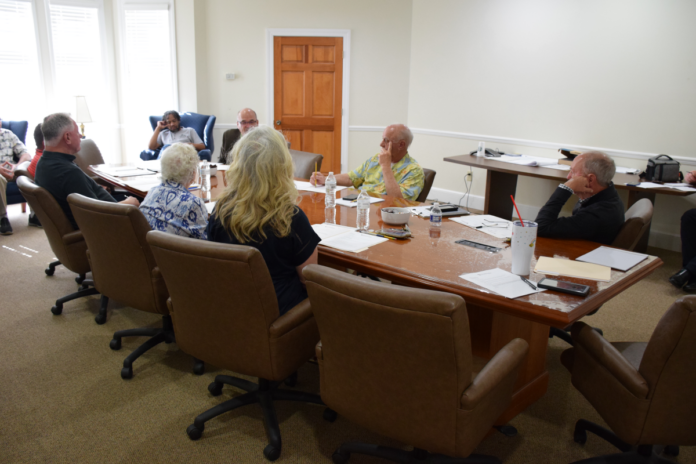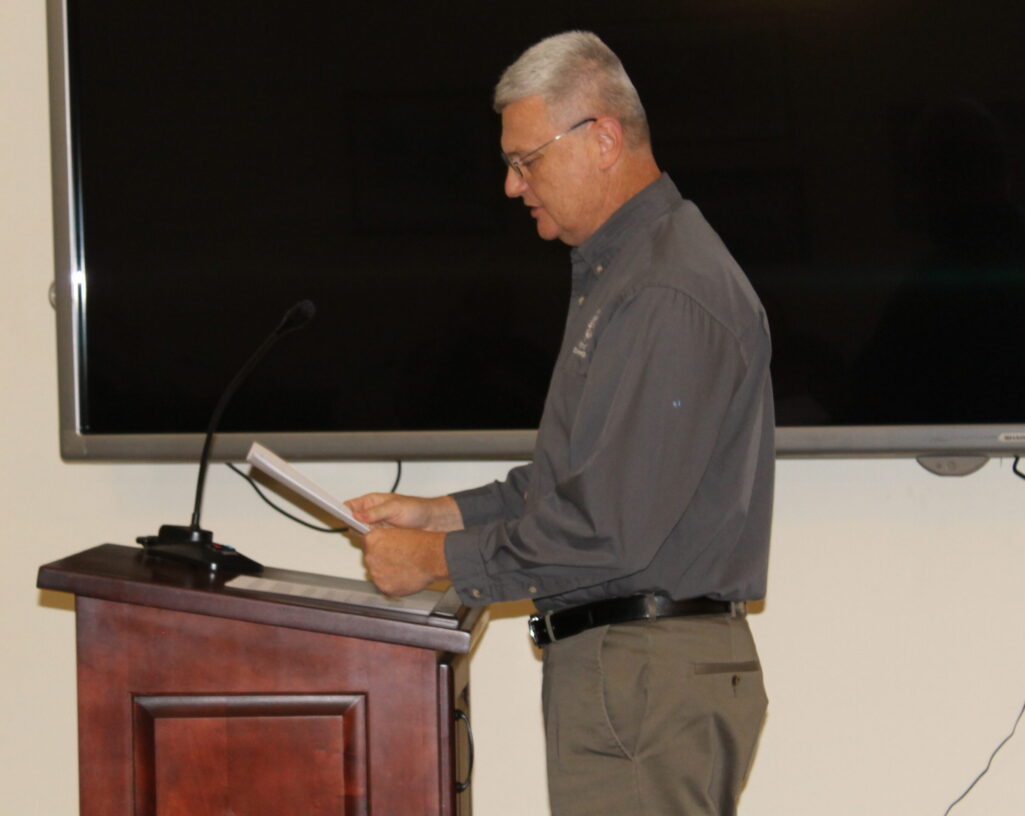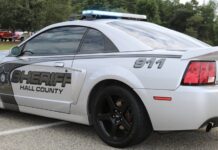
To combat crime, the city of Clarkesville is looking at the potential purchase of four Flock cameras – technology that captures license plate numbers of passing vehicles.
License plate reader systems often enable law enforcement agencies to enter license plate numbers and receive automated alerts on the whereabouts of the vehicle’s driver.
The four Flock cameras, purchased through the company Flock Safety, would come at a cost of $3,000 a year per device, according to City Manager Keith Dickerson. Dickerson said the license plate readers store data for 30 days.
“We can download it out, but (Flock) only maintains it for 30 days,” he said.
The city manager would not disclose the potential location of the four cameras, specifically. “I can’t tell you exactly, but they’re positioning them on all the main highways, so there’s no way in or out without somebody being able to be seen on the camera,” Dickerson said.
License plate readers have become increasingly common across the U.S. – particularly in urban areas – and continue to serve as an effective tool for law enforcement agencies to locate perpetrators and suspects.
“It’s going to give us a lot more surveillance,” Clarkesville Police Chief Danny Clouatre said. “Being a small department, we can’t have our eyes everywhere. Those cameras will allow us to have the ability to identify people that come into and leave our area.”
Clouatre said there have been a slew of crimes where the cameras could have helped law enforcement, with the most recent being an incident where a vehicle drove into and damaged a gate in front of a nearby cemetery. No arrest has been made in that case.

“We still have some leads, but that camera could’ve actually got us pictures – photos of the incident, instead of old fashioned leg work,” he said. “It will definitely increase the efficiency of our department.”
Privacy concerns
Over the years, as such technology becomes more prevalent across the U.S., organizations like the American Civil Liberties Union have called the concept a potential violation of privacy.
“The information captured by the readers – including the license plate number…the date, time and location of every scan – is being collected and sometimes pooled into regional sharing systems. As a result, enormous databases of innocent motorists’ location information are growing rapidly,” the group’s website states. “This information is often retained for years or even indefinitely, with few or no restrictions to protect privacy rights.”
In some cases, according to a 34-page report published by the ACLU, data collected from license plate readers may be stored in centralized databases, which can then be accessed to “plot all of the plate reads associated with a particular vehicle to trace a person’s past movements.”
“Longer retention periods and more widespread sharing allow law enforcement agents to assemble the individual puzzle pieces of where we have been over time into a single, high-resolution image of our lives,” the report states. “This constant monitoring and permanent recording violates our privacy in a number of respects.”
Clouatre said he believes the public’s safety outweighs fears or perceptions of civil liberty violations.
“Our reason for wanting them is just to protect the public and identify criminals,” he said. “We’re not wanting these cameras to do any kind of tracking or anything like that – that is not our intent. We’re just here to make our community safer.”
The readers are expected to be approved for purchase in the coming months.







